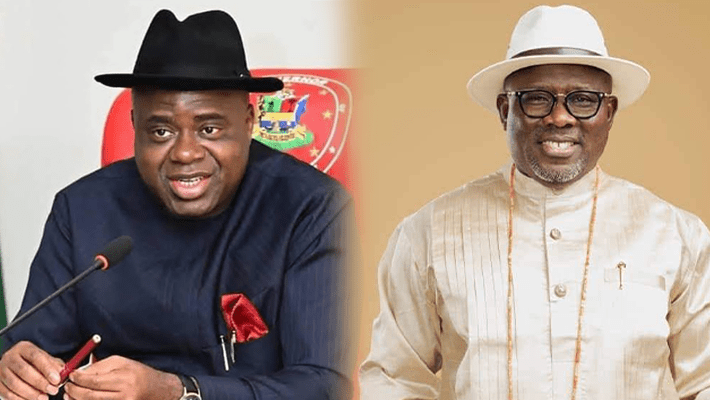The governors of Bayelsa, Delta, and Edo States, Douye Diri, Sheriff Oborevwori and Monday Okpebholo, at the weekend, called for the South-South geopolitical zone to be united and present a common position in the ongoing constitutional amendment process by the National Assembly.
In his goodwill message during the South-South Centre A, public hearing presentation by the House of Representatives Constitution Review Committee held in Yenagoa, Gov. Diri advocated an upward review of the 13 percent derivation, while stressing the need for true federalism where resource allocation would be based on resource generation. He said states should be allowed to control resources in their domains and pay taxes to the federal government. “The people of the South-South advocate for a system that acknowledges the worth and dignity of every citizen, irrespective of the geographical location”.
Diri also condemned the glaring disparity in the number of local government areas in the South-South and other parts of the country, proposing that states should be given the right to create local government areas they can manage and fund.
In a goodwill message, the Delta State Governor Sheriff Oborevwori, who was represented by the Deputy Governor, Sir Monday Onyeme, said the state is a strong advocate of constitutional order that promotes equity, justice, good governance, and sustainable development. The key demands of Delta State include the upward review of the derivation formula, removal of maritime matters from the exclusive list to the concurrent list, local government autonomy, state police, devolution of power, environmental justice, and judiciary reform.
“We proposed constitutional provisions guaranteeing the right to a clean and healthy environment, a binding obligation on all oil companies to undertake environmental remediation, and the legal mechanism to hold polluters liable”.
Also, his Edo State counterpart, Gov. Monday Okpebholo, represented by the Attorney General and Commissioner for Justice, Mr. Samson Osagie, said Edo State was committed to the goals of the constitution review; to ensure that it contributes its quota to make the exercise a success. Okpebholo also posited that the constitutional amendment exercise should not polarize the South-South; rather, it should form the basis for the region to unite.
Related Articles:
- Delta North APC endorses Tinubu, Gov. Oborevwori for second term
- “Edo open to all Nigerians, but security protocols must be followed”
- Katsina State Governor Dikko Radda hospitalised following road accident
Earlier, in an address, the leader of the House of Representatives and Chairman South-South Centre A, comprising Bayelsa, Delta, and Edo States, Rep. Julius Ihonvbere, assured that every document submitted would be carefully considered and presented to the full committee before it would be presented to the full floor of the House for consideration.
Rep. Ihonvbere allayed the concerns that there would be no go areas in the constitutional review processes, noting that it would touch areas such as electoral reforms, reserved seats, the role of traditional rulers, and youths.
In an interview on the sidelines of the event, the Ovie of Idjerhe Kingdom in Ethiope Local Government Area of Delta State, King Monday Whisky, said he wants a constitution that works for the ordinary Nigerian, a constitution that does not discriminate, that will also protect the rights of women and traditional rulers. King Whisky also advocated for reserved seats for women in the National Assembly and state House of Assemblies.
Also speaking, the Secretary Otuabagi Women Development Initiative in Ogbia Local Government Area of Bayelsa State, Mrs. Esther Orubo, lamented that constitutional review is long overdue and wants gender balance in all political appointments and elective positions, stressing that all positions should be 50 percent for males and 50 percent for females.
A non-governmental organization, Women Rights Advancement and Protection Alternative (WRAPA), and partner civil society organizations also presented a memorandum. Their key demands are reserved seats for women in the National Assembly and state Houses of Assembly and reforms of INEC leadership, selection process to strengthen electoral integrity and public confidence.
WRAPA noted that “both reforms are historic, strategic, and people-centred measures capable of delivering a truly representative and credible electoral system for Nigeria. The time for decisive, gender-responsive, transparent reform is now.”
